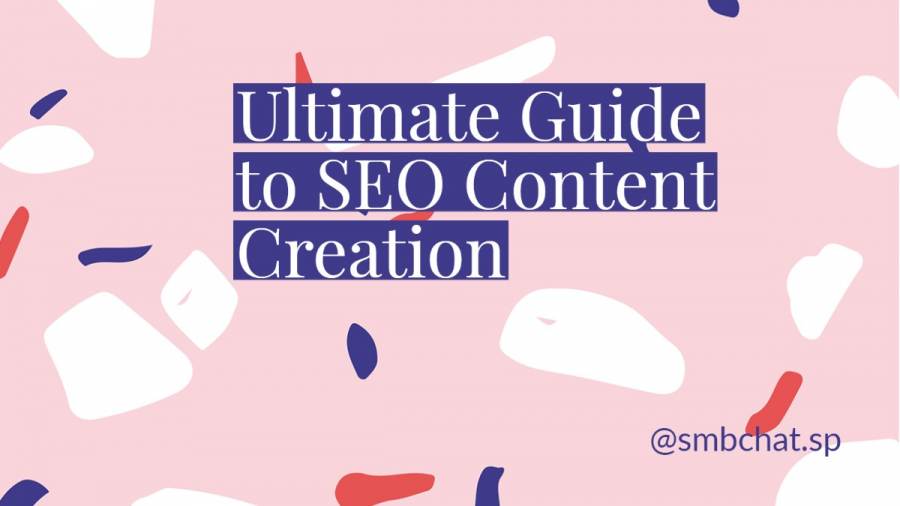What Content Marketing Is... (and What It Isn’t)
I’ll assume you’re sitting down somewhere, staring at a screen reading about content marketing. It’s all people talk about nowadays anyway.
We’ll also assume we don’t see that bag of Cheetos on the side and those crumbs on your keyboard (men/women of culture are most welcome)
Content marketing is one of those terms everybody thinks they know. That’s until you’re asked to define it point-blank.
“I’m sorry, I think I left my oven on. I’ll get back to you real quick.” Spoiler alert, they’ll never see you again.
If you’re one of those that feel like content marketing means everything in general and nothing in particular, you’re not alone.
The Last Definition Of Content Marketing You’ll Ever Need
Content marketing is a marketing technique of creating and distributing valuable, relevant content to attract an audience.
That Hubspot blog you’re reading is content marketing. So is that marketing podcast you fell asleep halfway through and that webinar you’ve been procrastinating on for weeks.
Content marketing has been around for ages. You’ll have to have fought WW1 to have outlived it, and it’s not going anywhere any time soon.
The only difference is that it has evolved throughout the years, its most recent adaptation to the information age being its best version yet.
Putting Content Marketing in Perspective: The Bigger Picture
That said, content marketing and its rising notoriety do not exist in isolation. It’s almost impossible to understand content marketing, and its meteoric rise, without looking at the greater picture.
To grasp the intricacies of content marketing, you’ll first have to understand:
1. Digital Migration the Information Age
The word “information age” used to get thrown around a lot. People used to say this to sound smart until it was dethroned by “AI and machine learning.”
Jargon aside, the information age refers to the increasing availability of information to the masses that happened at the tail end of the 20th century. Together with things like electronic mail, the internet set the stage for content marketing to go mainstream.
2. The Rise of Mobile Endpoints
In April 1963, a newspaper article with the headline “You’ll Be Able To Carry A Phone In Your Pocket In The Future .” ran in an Ohio daily. That future is here.
The rise of portable computers, together with the information age, means that your prospective customers now have access to data anywhere, anytime.
And it gets better. With laptops, computers, and mobile phones, you can market to literally any human in the world from the comfort of your marketing department.
3. Inbound Marketing
Fanning the flames of content marketing is the migration to inbound marketing. For ages now, marketers believed that the most efficient way to get leads was to chase them using a spray and pray strategy.
However, recent findings reveal that the most effective lead generation tactic is targeted advertising that lets your audience come to you. You’ve heard of SEO. This is a concept known as inbound marketing. By coincidence, content marketing is one of the best inbound marketing techniques.
What Are The Purposes Behind Content Marketing
Undoubtedly, content marketers have better things to spend their time, money, and weekends on; why invest in content marketing in the first place?
If you ever find you or your company pursuing content marketing, these will be their reasons:
1. Lead Generation and Conversion
The most prominent reason behind all forms of content marketing is lead generation. Many marketers hope that their content will appeal to their target audience, eventually leading to conversion.
Content marketing for lead generation works in three steps:
-
Awareness
Content marketing will first inform the target audience that your product or service exists. Every business seeks to be a household name, and awareness is the first step in that journey.
-
Consideration
At this point, the strategy shifts from lead generation to conversion. Here, content marketing presents the value proposition to your target audience.
It helps them identify their pain points and how the product will help the prospect eliminate or alleviate their issues.
-
Decision
Eventually, you want the client to take action, or all previous efforts go down the drain. In the decision stage, content marketing seeks to gain a response from the audience.
The decision could be clicking on a link, making a purchase, subscribing to email content, or physically visiting a store.
2. Building Credibility
Humans are highly skeptical creatures. Though many businesses would rather it wasn’t true, prospects won’t trust a company they have never heard of.
It’s even worse if they Google it and can’t find anything. They’ll probably conclude that your product is a scam or a rip-off and flee.
Content marketing is one of the cheapest and most effective strategies for scaling that wall of skepticism. Some of the ways content creation builds credibility are:
- Blogs make your content familiar with an audience
- A social media presence makes audiences trust your brand more
- Audiences will always assume high-quality content comes from high-quality brands
- Positive reviews seal the deal and remove whatever skepticism that was left
3. Education
Not all reasons behind content marketing are exclusively for your benefit. Others have a touch of altruism in them.
For example, you could put a blog about how families can stay safe from Covid on your website, or even one that helps families get access to the Covid vaccinations in your area.
Well, why?
For starters, you’ll have no target audience left if they all die from Covid or lose their jobs from its economic effect.
Most education blogs seek to help your target audience with challenges that deal with your product or any other product your audience may be using.
Given that audiences have grown numb with salesly “buy our product” content, educational content offers an opportunity to break ice or barriers with reserved clients.
4. Thought Leadership
Thought leadership means that people no longer look up to you for products and services alone but also ideas and perspectives.
You probably have an informed opinion on emerging issues in your industry; putting them out there is an excellent strategy. Subsequently, content marketing is one of the most effective ways to put your thoughts out there.
Through thought leadership, you get to go above your product and value proposition to winning the hearts and minds of your audience.
5. Launching A New Product
Launching a new product in an industry is one of the most complex days for a marketing team. There are millions of things that could go wrong. Subsequently, the first impression a product makes with its audience is crucial.
Content marketing offers a timely solution to this problem. 49% of users say they use Google to identify a new product, and having content about that launch is the best way to raise awareness.
Types Of Content Marketing
Content marketing often gets associated with blogging and blog posts. However, that’s only the tip of the iceberg. Believe it or not, blogging is the third most popular type of content marketing after Webinars and Ebooks.
On that premise, there are many more types of content marketing that should have a place in your strategy.
Some of the types of content marketing you should have in your arsenal include:
#1. Blogging
Blogging is the process of creating a library of consistent content about your product or service for your audience.
Some of the companies that have perfected the art of blogging are HubSpot, IKEA ideas, and Several People are Typing by slack.
Do you have a blog? If you don’t, I bet you also don’t know that companies with blogs produce 67% more leads than companies without blogs. Blogging is a train you should consider getting aboard. Companies.
#2.Videos
What’s the first thing that comes to your mind when you hear the term video marketing? For me and many others, it’s Old Spice Terry Crews shouting “POWEEEER” in his underwear (good times)
Nothing will prepare you for this, but video content gets 1200% more shares than pictures and blogs combined. If you don’t have videos in your content strategy, what are you waiting for?
Video marketing entails using videos( either long or short) to present your value proposition to your target audience. Marketers have now discovered that they can use videos to break up text in blogs and websites.
#3.Infographics
Nobody likes a plain wall of text or a bunch of numbers glaring at them. Life is too short for that. Fortunately, marketers have infographics, a type of content that involves using visuals to represent data.
Pie charts and graphs are a form of infographics, but marketers soon realized that they could do better. That’s probably after they realized that articles with visuals get 94% more views than articles without visuals.
Nowadays, infographics involve data that is presented using color codes, font differentiation, and animation to grab the prospect’s attention and drive the point home.
#4.Podcasts
A podcast refers to a series of audio episodes that are focused on a particular theme or subject. In the case of content marketing, podcasts usually focus on a product, service, or the industry at large.
If done right, your company’s podcast builds an audience, which is one of the aims of content marketing.
#5.Webinars
A webinar refers to an online event that is hosted or held by a company and broadcasted to a few select individuals.
Webinars are long videos that your teams have with your target audience to address issues that are of common interest to your audience.
A webinar deals mainly with:
- Questions and Answers
- Frequently Asked Questions
- How to’s
Because about 55% of registrants convert to attendees, webinars are an excellent lead generation strategy.
#6.Case Studies
You’ve probably heard that long-form articles, about 2000 words, are the best at lead generation.
There are fewer types of content marketing this side of long-form content as effective as case studies.
Case studies are a form of content that explains your value proposition to your prospective customer from the perspective of your previous work.
#.7 Ebooks
Sometimes, a single blog is not enough. This is where ebooks come in. They are a long-form type of content marketing created by a marketing team to provide information.
Some marketers create ebooks from scratch. Others choose to repurpose previous content and agglomerate their related blog posts to create a continuous resource that becomes their ebook.
Whichever path you take, having an Ebook as part of your content marketing strategy goes a long way in helping you achieve your marketing goals.
#8 Customer Reviews
Why tell your prospects about how happy your existing customers are when your customers could tell them themselves.
This brings us to reviews, which are one of the most effective types of content marketing. For starters, you don’t have to create the actual reviews. Your happy customers do that on your behalf.
Moreover, the numbers confirm its efficacy. Statistics show that 95% of customers read reviews before purchasing a product. Similarly, 92% of customers are more likely to buy a product after reading a trusted review.
The Numbers Behind The Hype
Is the hype around content marketing real, or is it just another fad that no one will remember a few years down the line?
Let’s look at the statistics that have sold so many marketers on content marketing. These include:
- “Where to buy” and “near me” mobile queries have increased by over 200%
- Marketers who prioritize blogging are 13X more likely to have positive ROI on their efforts
- 70% of marketers are actively invested in content marketing
- Content marketing delivers 3X as many leads as other marketing channels
Why Bother? The Benefits Of Content Marketing
You could take the revenue surplus from your marketing, put your teams on a bus, and have a road trip to Miami.
However, these reasons will be enough to convince you otherwise. You’re better off investing in content marketing because:
-
ROI
Every single dollar you invest in content marketing will be recouped at some point in the future.
-
Profitability
The lead generation and conversion from content marketing trickle down to revenue generation and the eventual profitability of your enterprise.
-
Cost Savings
Aspects of content marketing such as email marketing and search engine optimization are cheaper in the long run than conventional types of marketing.
-
A Clear and Defined Brand
Over time content marketing builds a brand image in the minds of your audience that separates you from other companies.
-
Create Brand Loyalty and retention
Generating and converting leads is easy. What’s challenging is getting these leads to stay and converting them into loyal returning customers.
Content marketing and its forum-based strategies, such as podcasts, go a long way in helping you build a family of loyal supporters.
We Can Help
Blogging is the heartbeat of any content marketing strategy. Subsequently, behind every blog is an army of passionate and dedicated writers churning out authentic, lovable, and SEO-based content.
This call to action is that army of writers reporting for duty.
















